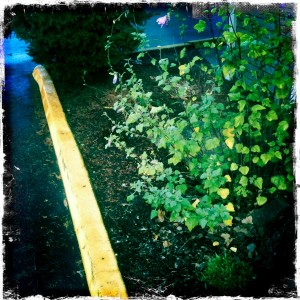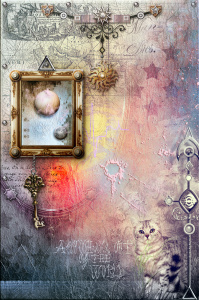
I’m getting faster at the process as I go, and I’m also refining it, which unfortunately means I need to go back over some of the earlier releases, just to make them all look the same as far as prettiness and completeness goes.
Would it be better to space releasing the stories out over the course of a year? Probably. But I’d like to get this all set up and done so I can move onto other things. I have enough stories that will be added over the course of the year as I write them or their rights become available that there will be plenty of additions as is.
What I’ve done with the stories is split them up into series. This is an easy enough task because I’ve got plenty of clusters of stories where characters or locations repeat, as with Twicefar Station, which is the backdrop for “Amid the Words of War,” “Kallakak’s Cousins,” and “On TwiceFar Station, As the Ships Come and Go.” It’s also the same world as “TimeSnip,” whose main character appears in “On TwiceFar Station, As the Ships Come and Go.”
Why I’m doing this:
- This allows me to provide readers who like a particular story with a way to find similar ones. If they read “Her Windowed Eyes, Her Chambered Heart,” for instance, and want to find other steampunk stories by me, they can look at the others in the Altered America series.
- This lets me play with KDP in a meaningful way. If I make the first book Kindle only for at least the first year, I can use the Kindle Select promotional tools and get readers to sample a story by giving it to them free.
Here’s what I’ve got sorted of the series so far, with a description of each.
Altered America (steampunk)
Her Windowed Eyes, Her Chambered Heart
Rappacini’s Crow
Closer Than You Think (near future SF)
All the Pretty Little Mermaids
Tortoiseshell Cats Are Not Refundable
Zeppelin Follies
English Muffin, Devotion on the Side
Memories of Moments, Bright as Falling Stars
Therapy Buddha
Farther Than Tomorrow (slipstream & space opera)
Bus Ride to Mars
Five Ways to Fall in Love on Planet Porcelain
Grandmother
Elsewhen, Within, Elsewhen
Superlives (superheroes)
Ms. Liberty Gets a Haircut
Acquainted with the Night
Tales of Tabat (secondary world fantasy)
Narrative of a Beast’s Life
How Dogs Came to the New Continent
Events at Fort Plentitude
Sugar
Love, Resurrected
In the Lesser Southern Isles
Twicefar Station (far future SF)
Kallakak’s Cousins
On TwiceFar Station, As the Ships Come and Go
Amid the Words of War
I Come From the Dark Universe
Villa Encantada (urban fantasy/horror)
Eagle-haunted Lake Sammammish
Villa Encantada
Crowned with Antlers Comes the King
Women of Zalanthas (secondary world fantasy)
Aquila’s Ring
Mirabai the Twice-lived
Karaluvian Fale
The World Beside Us (urban fantasy/horror)
Jaco Tours
Magnificent Pigs
Heart in a Box
Can You Hear the Moon?
Of Selkies, Disco Balls, and Anna Plane
So far, after approximately a month of getting stuff up there, I’m seeing some small sales, but also a tiny uptick in my collections that could be due to something else entirely. (Self-publishing is such a mysterious process!) So over the course of the year, I’ll be tracking the results.









16 Responses
@Catrambo Interesting! I was planning to release some related stories as a collection, but maybe single works as a series would work also.
RT @Catrambo: My Theories About Series and Self-Publishing: http://t.co/9l9mkvFebq
I like the idea of theme clusters as series – a good idea for discoverability. Thanks for giving us a peak under the good of your SP efforts. 🙂
Question: are you pricing each story at $.99? I could see doing that possibly for longer stories but not flashes, however there are plenty of $.99 collections, novels, and even novel series, so I’m not sure I would do this (unless you tell me that you’re making money!).
Dale Ivan Smith liked this on Facebook.
Michael R. Underwood liked this on Facebook.
Malia Kawaguchi liked this on Facebook.
Alex Mandarino liked this on Facebook.
Jennifer Crow liked this on Facebook.
Jeff Haas – great question. Yup, I’m not using flash because I’d feel bad charging .99 for that (that’s why I like QuarterReads http://www.quarterreads.com ). I am charging .99 for stories, which means I get .33 per sale (plus Kindle Unlimited loans). I am only using stories that have already appeared either in a regular publication or a Patreon release, so my investment consists of the time I put into formatting and publishing it (right now that’s about a half hour per, but I hope to continue to get faster, since it was about an hour per when I started fumbling with it) as well as the cover. I am using Fiver.com for the covers, and while a few are kinda clunky, others I’m quite satisfied with, like the cover of “Her Windowed Eyes, Her Chambered Heart”. Michael R. Underwood – you’re welcome! I thought it might be useful. So much of what self-publishers are doing is discovering by doing.
(Forgot part of what I was going to say, which follows.) So on Fiver.com a cover runs me $5, which means that as far as the tangible costs go, each story only has to sell 15 times to earn out those. Looking at last month, “Ms. Liberty Gets A Haircut” has done close to twice that, but it’s the leader of a fairly stagnant pack. Still, everything that I’ve put up has sold at least one copy, most more than that. I figure lots of small trickles start adding up at some point, and if they publicize each other (and my “brand”) at the same time, all the better.
Tony Peak liked this on Facebook.
Thanks, Cat. I’ll check out those sites.
Camille Gooderham Campbell liked this on Facebook.
@Catrambo Having a permafree lead in works well for me. You may want to try it for one and compare results with one you keep in KDP.
C.j. Sellers liked this on Facebook.